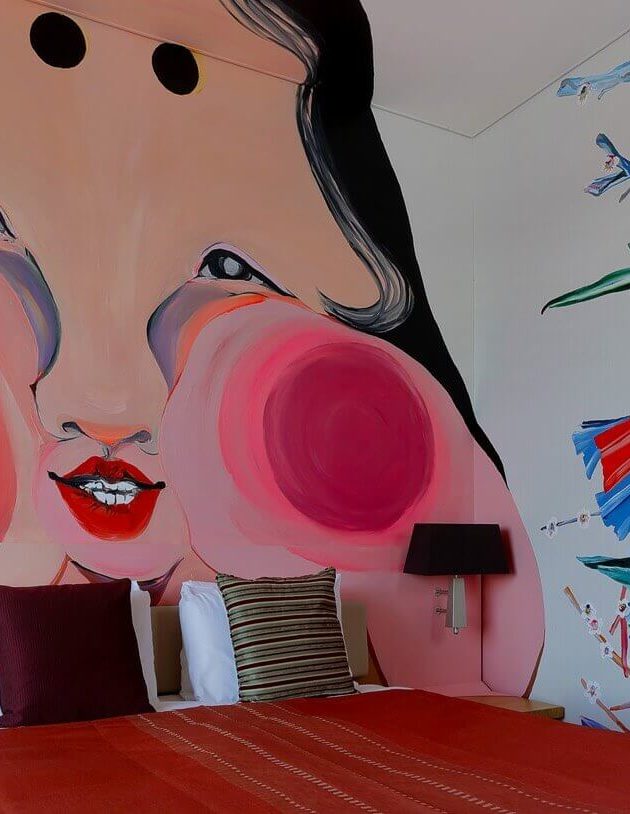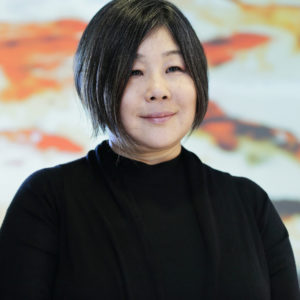Close


The 23rd Artist Room on the theme of “Haiku” was started on May 14, 2016 by Rieko Fujinami, an artist who lives in the United States, continued the work for about 2 month while staying at the hotel, and completed it on July 11, 2016.
Haiku, a short poetry form using words that whisper, capturing the moment and crystallize eternity within a short passage, have traveled far beyond its origins in Japan. “I hope that in this space the haikus that guests have in their hearts will spring to mind as naturally as breathing, regardless of language or cultural differences”, says Fujinami. She created a world of haiku where, rather than thoughts or emotions, expressing an instantaneous observation of the subtleties of nature, using seventeen syllables in Japanese, divided into three lines of five, seven, and five.
As the first for an Artist Room, it is decorated with moving images and sound effects. Projected on the wall are carps swimming in a pond, and against a beautiful, magical and ambient sound, the colors of the image change, creating a flowing effect. The bed is surrounded by drawings of lotus, and when you lie on your back and look up, you will see a jet-black Milky Way on the ceiling. Beside the window is the silver moon and a line from Basho’s haiku, “tsuki zo shirube / konata e irase / tabi no yado”. Explore a poet’s feeling and delight creating a line or two of haikus, in the middle of nature at the Artist Room Haiku, located on the 31st floor of a high-rise building.
Enjoy the world of Haiku observing the transient movements of light and shadow in the Artist Room Haiku.
Room #3102 | Completion Date: July 2016
Haiku is short poem of seventeen syllables in Japanese, divided into three lines of five, seven, and five syllables, with a rule that they should contain a word, called a kigo, symbolizing the season. Rather than expressing the poet’s own thoughts or emotions, haiku expresses an instantaneous observation of the subtleties of nature, using one or more of the senses. Capturing the moment, they crystallize eternity within a short passage. The spontaneity and simplicity of this short poetry form, using words that whisper, not shout, have enabled it travel far beyond its origins in Japan. Haiku is especially beloved in English-speaking countries, and many English language haikus are written today.
In this room, I have created the shadows of fish dancing in a lotus pond, and a jet-black Milky Way, together with the moon, and a haiku by Basho, tsuki zo shirube / konata e irase / tabi no yado, which roughly translates into English as the moon a sign / this way sir, to enter / a traveler’s inn.
I hope that in this space the haikus that guests have in their hearts will spring to mind as naturally as breathing, regardless of language or cultural differences.
Rieko Fujinami

1984 Graduated Tokyo Zokei University
1986 Graduated M.F.A., Tama University
Since 2003, live in Beacon, NY.
Create artworks using various methods such as painting, drawing, digital imaging, fresco secco, combined technique, etc.